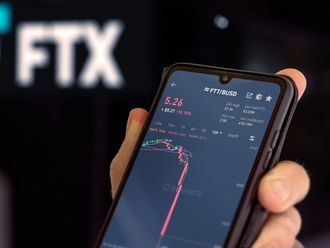LONDON: Benchmark German bonds are headed for their worst week since the aftermath of November’s US election on Friday, as Donald Trump’s first week in office fuels expectations of inflation and growth-boosting policies in the world’s biggest economy.
Italy has also been badly hit in a broad debt market sell-off on fears the country is headed for early elections, adding to the political risks stalking Europe with France, the Netherlands and Germany also holding polls in 2017.
While the rout that has pushed German and other Eurozone yields to around one-year highs last week ebbed on Friday, investors were left waiting for Trump’s joint press conference with British Prime Minister Theresa May at the end of a busy week for the US leader.
Trump has made several business-friendly decisions since taking office last week including signing executive orders to reduce regulatory burdens on domestic manufacturers and clearing the way for the construction of two oil pipelines.
In Europe, expectations for rebounding growth and inflation have prompted a chorus of calls from German policymakers for the ECB to wind down its monetary stimulus. The ECB is buying tens of billions of bonds every month in a scheme due to run until at least December, and has deeply-negative interest rates.
A market gauge of long-term inflation expectations in the Eurozone — the five-year, five-year forward rate — has climbed to its highest in over a year last week and is broadly in line with the ECB’s near 2 per cent target.
“The unexpected could well come from central banks, with scope to toughen talk and walk the talk as the year progresses,” Societe Generale strategist Ciaran O’Hagan said.
German 10-year yields edged down slightly to 0.47 per cent on Friday, off a one-year high of 0.498 per cent hit on Thursday, but up 12 basis points (bps) last week in its worst run since the week ending November 11.
Political outsider Trump defeated Hillary Clinton in a shock result on November 8. Italian equivalents also fell to 2.21 per cent, off a 16-month high of 2.28 per cent hit Thursday, but are up 19 bps last week in their worst run since November.
Italy’s constitutional court on Wednesday threw out aspects of an electoral law approved by former prime minister Matteo Renzi but presented a reworked version that can be used immediately, raising the chance of early elections this year.
Italy’s largest parties — Renzi’s Democratic Party (PD) and the anti-establishment 5-Star Movement — are both calling for a vote by the summer, about a year ahead of schedule.
Most other Eurozone yields have risen sharply last week — with those in France and Portugal hitting around one-year highs on Thursday — although they edged back a touch on Friday.












